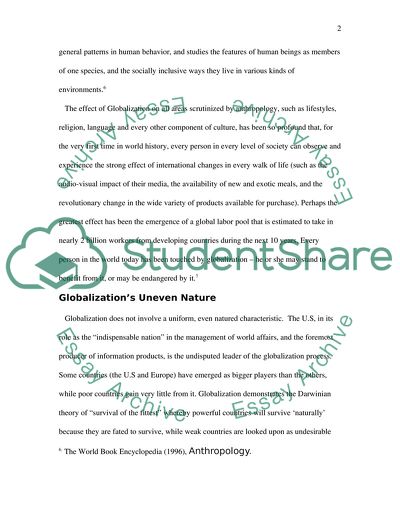Cite this document
(“The Effect of Globalization on Anthropology Essay”, n.d.)
Retrieved from https://studentshare.org/anthropology/1538229-examine-the-effect-of-globalization-on-a-band-tribal-or-peasant-soceity
Retrieved from https://studentshare.org/anthropology/1538229-examine-the-effect-of-globalization-on-a-band-tribal-or-peasant-soceity
(The Effect of Globalization on Anthropology Essay)
https://studentshare.org/anthropology/1538229-examine-the-effect-of-globalization-on-a-band-tribal-or-peasant-soceity.
https://studentshare.org/anthropology/1538229-examine-the-effect-of-globalization-on-a-band-tribal-or-peasant-soceity.
“The Effect of Globalization on Anthropology Essay”, n.d. https://studentshare.org/anthropology/1538229-examine-the-effect-of-globalization-on-a-band-tribal-or-peasant-soceity.


